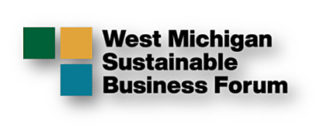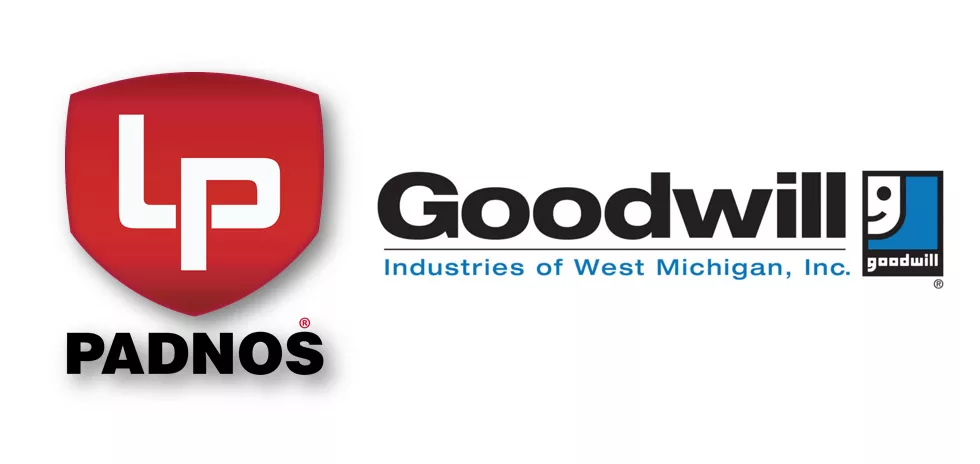Those with criminal backgrounds or other barriers who are seeking to redeem their lives through certification training in manufacturing and recycling will have a renewed opportunity in Michigan thanks to a portion of state grant dollars announced on Monday.
When Michigan’s Department of Environment, Great Lakes, and Energy — EGLE — rolled out more than $1.2-million in Renew Michigan grants to a number of West Michigan community, business and nonprofit recipients, among them was a partnership between Padnos Recycling & Scrap Management and Goodwill Industries of West Michigan. Additionally, the West Michigan Sustainable Business Forum was a grant winner. 
In a virtual news conference on Monday, EGLE officials were joined by Grand Rapids Mayor Rosalynn Bliss, State Sen. Winnie Brinks, from Grand Rapids, and State Rep. Bradley Slagh, from Zeeland, and the national nonprofit The Recycling Partnership to announce $1.2 million in Renew Michigan grants designed to support the largest push in West Michigan history to promote recycling activities.
In addition, Mayor Bliss, EGLE and The Recycling Partnership released results from a new report that shows the City of Grand Rapids successfully reduced curbside recycling contamination by 40-percent during the city’s “Feet On The Street” (FOTS) campaign last fall – the best performance in the state among the seven communities that participated in the new 2020 pilot program launch.
The City is using the FOTS data – which shows the most common mistake Grand Rapids residents commit while recycling is inadvertently putting their materials in plastic bags before it goes into bins, as recyclables should be left loose in the curbside bin – to roll out a 2021 “hyper-local” education campaign with EGLE’s support. That will inform the city’s roughly 55,000 households on best recycling practices and emphasize avoiding the use of plastic bags and plastic wrap in recycling bins.
Mayor Bliss says, “Grand Rapids and communities across West Michigan are excited to continue partnering with EGLE in 2021 to create and expand recycling efforts,” and adds, “These efforts are aligned with our sustainability goals in that they divert materials from landfills and help grow our local economy by supporting businesses committed to using recovered materials.”
The Renew Michigan fund was created with widespread bipartisan approval by the Legislature in 2019 to bolster the state’s recycling efforts. In West Michigan, the 2021 Renew Michigan grant recipients announced by Sen. Brinks and Rep. Slagh include:
- Goodwill Industries of West Michigan and Padnos Recycling and Scrap Management ($200,000), with the EGLE grant serving as a catalyst to those two organizations receiving more than $820,000 in funding from a $4.5 million grant by the U.S. Department of Labor Employment and Training Administration to support the Ignite Reentry Program, which offers manufacturing/recycling certification training for individuals with criminal backgrounds or other barriers.
- Innovakote West Michigan ($273,000), which specializes in recycling manufacturing powder coating. As much as 400 million pounds of powder coating waste ends up in U.S. landfills every year without an adequate solution, no less than 5 million pounds of which comes from Michigan. Innovakote is using its Renew Michigan grant to help address this problem by keeping that material out of landfills. They will be using state-of-the-art new technology that will recycle this material and place it back into the market as a fully recycled “virgin” project. Because of this grant, Innovakote expects that by 2023 the company will begin hiring new employees and importing, recycling and selling a significant portion of the 2 billion pounds of powder coating that goes to landfills worldwide each year from its facility in West Michigan.
- City of Holland ($267,000) to support the city’s transition from an ineffective recycling bag system to a new program where all single-family homes will receive curbside recycling carts. Currently only 12.6% of recyclables entering the stream are captured via yellow bags; the rest are mixed in with general waste and ultimately landfilled.
- The Kent County Department of Public Works ($199,000) to improve the quality and quantity of recycled glass and recycled polypropylene (#5) plastic. This is the kind of plastic used in yogurt and cottage cheese containers and the like. Number 5 plastics can be recycled though some curbside programs in West Michigan into such new products as signal lights, battery cables, brooms, brushes, auto battery cases, ice scrapers, landscape borders, bicycle racks, lawn rakes as well as bins, pallets, trays, and more.
- Public Thread ($133,000) in Grand Rapids. Public Thread is a community-based upcycling company working to divert scrap and surplus textiles from our landfills, create living wage jobs, and support a growing creative economy. By creating something new out of materials that already exist, Public Thread is keeping thousands of pounds of textiles from the landfill, including grain bags, specialty fabrics, traditional textiles, banners, signs, and billboards. And then Public Thread designers transform these rescued materials into a diverse collection of exceptional, expertly-crafted products for the mindful consumer.
- The Materials Group plastic fabrications company ($100,000) in Rockford distributes and manufactures a wide range of engineered thermoplastic resins for automotive OEMs such as Ford, General Motors and Chrysler, suppliers such as Mitsubishi, as well as other industries.
- West Michigan Sustainable Business Forum ($57,000)
- Calhoun County ($37,900)
EGLE Director of Materials Management Division Elizabeth Browne, says, “The West Michigan community, business and nonprofit recipients that are receiving a combined record-setting total of $1.2 million in Renew Michigan grants are part of EGLE’s strategy to support recycling infrastructure, improve the quality of recyclable materials and promote market development using the Renew Michigan Fund.”
Some of the funding will be used by grant recipients to upgrade equipment to integrate robotics or introduce other cutting-edge processing technologies as part of a long-term strategy to create cleaner streams of recyclables that could be more attractive to domestic buyers of recycled materials.
Senator Brinks says, “There is no dispute recycling has important environmental benefits, such as limiting the need to extract new resources and reducing greenhouse gas emissions,” adding, “Equally important, recycling improves local economies and creates jobs through the transformation of recycled materials into new products.”
Gov. Gretchen Whitmer and state legislators want to double Michigan’s recycling rate to 30-percent by 2025 and ultimately reach 45-percent annually. Michigan’s current 15-percent recycling rate is the lowest in the Great Lakes region and ranks among the nation’s lowest.
Recycling across Michigan is receiving a major boost as state legislators have increased EGLE’s funding for recycling projects from $2 million annually to $15 million per year moving forward. The additional funds are being used to support development of recycling markets, increase access to recycling opportunities and support planning efforts to grow recycling at the local level.
Now, more than ever, Michigan residents view recycling as an essential public service. And during a time of social distancing when many nonessential employees are working remotely and commercial recycling is near an all-time low due to the coronavirus pandemic, producers see residential recycling programs as a critical part in the manufacturing supply chain so they can make their products from recycled content instead of new materials.
Estimates show 75-percent of the approximately 2.1 million cubic yards of trash that Kent County annually discards in landfills – a volume that would fill the University of Michigan’s “Big House” football stadium twice over – could be diverted and repurposed through improved recycling, composting and waste conversion, according to West Michigan Sustainable Business Forum Executive Director Daniel Schoonmaker.
The Renew Michigan grants to his organization and Calhoun County will be used to promote activities aimed at increasing participation in curbside recycling, expanding recycling opportunities and investing in new technology that can separate and divert waste from landfills, he asserted.
Schoonmaker says, “It is critical that we work together with EGLE to ensure we achieve our region’s goals for sustainable operations, particularly in light of the COVID-19 pandemic, shifting government requirements, material availability and the need to improve consumer behavior toward recycling through education.”
The Renew Michigan grants and the FOTS program align with EGLE’s national award-winning “Know It Before You Throw It” recycling education campaign featuring the Recycling Raccoon Squad. The campaign is promoting best practices and emphasizes that recycling materials saves energy, reduces water use, decreases greenhouse gases, conserves resources and translates into local jobs.






